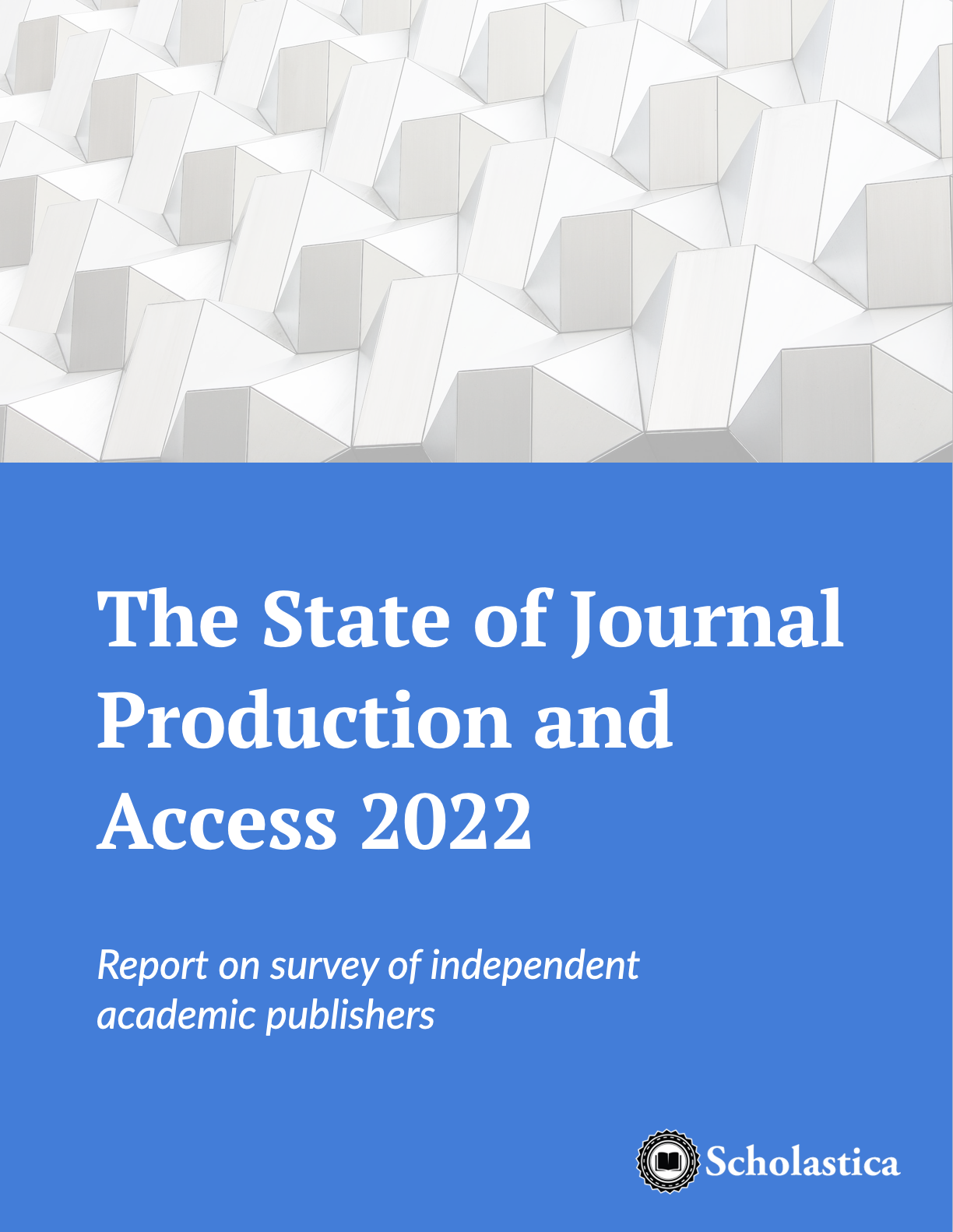The State of Journal Production and Access 2022: Report on survey of independent academic publishers
New report on a survey of scholarly society, university, and research institution publishers offers insights into how they currently approach journal production and content access and their future priorities.

About the Report:
For independent academic publishers, the digital landscape presents many new opportunities to expand the reach and influence of research along with new challenges — often at the intersection of article production and access. Publishers are weighing evolving content formatting and metadata standards as well as open access (OA) mandates, which increasingly go hand in hand and can directly affect journal discoverability and impact.
The 2022 "State of Journal Production and Access" report details the results of a global, cross-disciplinary survey of scholarly society, university, and research institution publishers about how they are approaching journal production and access now and in the future, spanning:
- Article production processes and formats
- Metadata tagging standards and approaches
- OA journal development plans and funding models
The goal of the survey and this subsequent report is to help publishers benchmark their immediate and long-term production and access priorities against their peers and provide a snapshot of the evolution of academy-led publishing programs up to this point in these discrete but related areas of publishing for all stakeholders. Click here to read the full report.
2022 Survey report respondent highlights
Over 80 survey responses from individuals working with journal programs in 28 countries
Respondents work in leadership, editorial, production, and technology roles.
Respondents represent a range of publisher sizes, working with anywhere from one to 100+ journals.



